The turnout at a Manhattan “Jewish Reconstructionist” congregation’s election night watch party was emblematic of something about the future of American Jewry. To read what, click here.
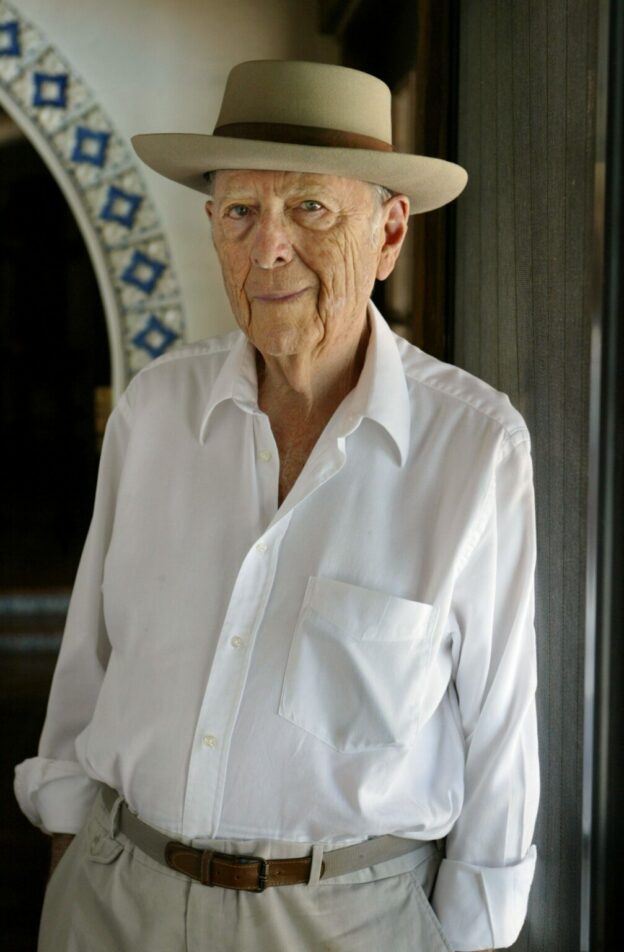

The turnout at a Manhattan “Jewish Reconstructionist” congregation’s election night watch party was emblematic of something about the future of American Jewry. To read what, click here.
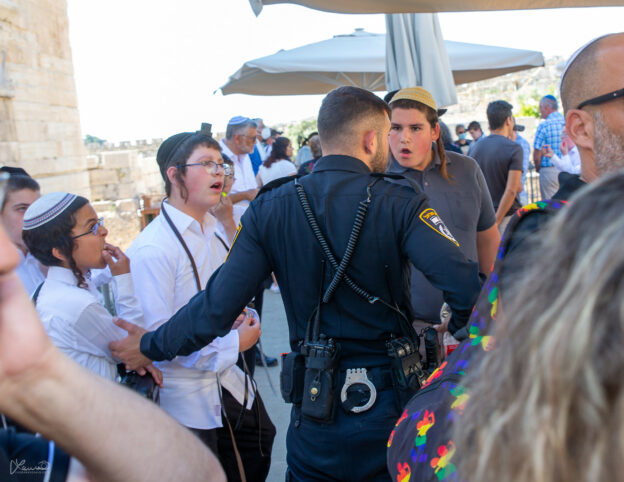
A piece I wrote for Forward, about ending violence at the Kotel, appeared before Tisha B’Av and can be read here.
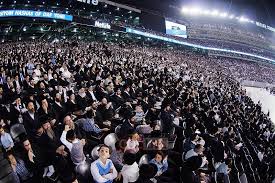
An essay of mine about the Siyum HaShas and Jewish unity appears in this week’s Jewish Week. It can be read here.
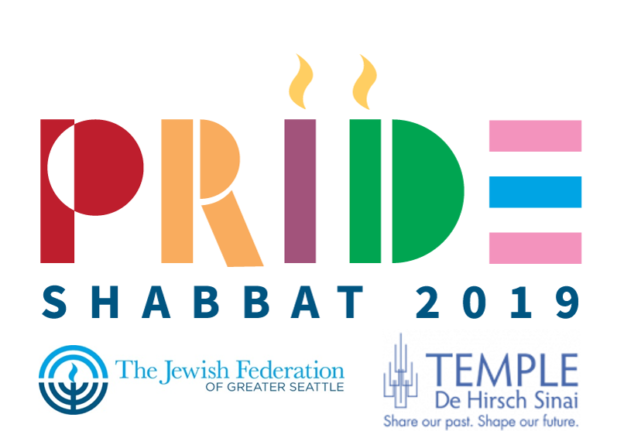
When a media offering chooses to not identify a quoted speaker, it loses a bit of credibility. But the words attributed to several unnamed Jewish federation leaders in a recent report in the Israeli newspaper Makor Rishon had the ring of truth. And of some wisdom.
Jewish federations, of course, are community-wide nonprofits – sort of “super-pushkes” – that raise money to fund local causes and other Jewish ones overseas, including Israel.
The first Jewish federation in North America was founded in Boston in 1895. Today, there are local federations in over 100 American cities and some 300 smaller communities. And, in addition, there is a national umbrella organization called the Jewish Federations of North America (JFNA). Its slogan, adopted in 2012, is “The Strength of a People. The Power of Community.”
The Makor Rishon news story had the anonymous federation leaders admitting, at a meeting of the Jewish Agency’s Board of Governors, that it had been a mistake for their groups to join the assault on respect for kedushas beis knesses at the Kosel Maaravi.
Israeli firebrand Anat Hoffman has famously made her life’s goal the dismantlement of the longstanding norm at the Kosel (and of the government’s general regard, through the state’s official Rabbanut, for the Jewish mesorah). Both the national Jewish federation and numerous local ones vocally supported her designs and financially helped gird her for battle.
The recently quoted leaders haven’t exactly come to acknowledge the importance of the mesorah, only – hey, it’s a start – the impracticability of declaring the Jewish religious tradition to be the enemy. They observed that most Israelis, even non-religious ones, have no real interest in the “religious pluralism” pushed by non-Orthodox American Jewish representatives. “How,” one “senior official” is quoted as saying, “can the struggle succeed if it is just a headache for so many Israelis who do not understand what the uproar is?”
Another fedhead – and here is where the wisdom comes in – reportedly told the paper that “The progressive streams in the United States, the Reform and the Conservative movements, are in a complex and difficult place. They are unable to recruit the next generation to their synagogues. Therefore, they are not in a position to preach to Israelis how they should conduct themselves at the Western Wall.
“Throughout the crisis,” the official continued, “I warned that we were putting all our chips on the subject of the Western Wall, without thinking for a moment if this was the right struggle for us.”
Both local federations and the national federation body have had uneasy relations with the Orthodox communities that are ostensibly part of the constituency they represent. The unease doesn’t stem, chas v’shalom, from any animus for fellow Jews, but entirely from some of the positions taken by federations.
Contemporary social causes that stand in stark and undeniable opposition to what the Torah expressly states are embraced wholeheartedly (and buoyed financially) by Jewish federations across the country, and by JFNA.
And not only do federations routinely offer funds to projects of Jewish movements that reject part or all of the Jewish mesorah, but a JFNA initiative, “The Israel Religious Expression Platform” (“iRep” – don’t ask why Israel has been demoted to lower-case), has as its mission “to impact a range of issues related to increasing religious pluralism in Israel” and to “advance meaningful change to the religion-state status quo, including expanding the range of legally-recognized options for marriage and divorce in Israel.”
No Orthodox Jew – nor any Jew concerned with preserving a single Jewish people in Israel – could in good conscience support that agenda.
The Jewish Federation system is at a crossroads. It can continue to be a stable boy for the non-Orthodox religious movements, or it can go back to its roots and focus on the needs of Jews – all Jews. Both the physical – there is poverty and even hunger among Jews, overseas and in the U.S. as well – and the non-material.
To wit, the Jewish day school system is a proven engine of Jewish continuity, and day schools and yeshivos are often on the verge of insolvency. There are Jewish federations that indeed, to their credit, earmark funds to help Jewish schools and tuition-strapped parents. But if all the funds sent into the black hole of pluralism-pushing in Israel and “progressive” causes in the U.S. were to be diverted to Jewish education, the American Jewish identity picture would be a much rosier one than it is.
No one expects federations to start funding traditional kollelim (though it would be a great merit for them if they did), but investing in community kollelim, Jewish outreach groups and chavrusa programs like Partners in Torah and TorahMates would be a truly wise choice for federations – if they are really determined to help build a brighter American Jewish future.
Connecting Jews – of all stripes and affiliations – with their ancestral heritage, its texts, traditions and wisdom, would truly boost “The Strength of a People. The Power of Community.”
The ball is in the federations’ court.
© 2019 Hamodia
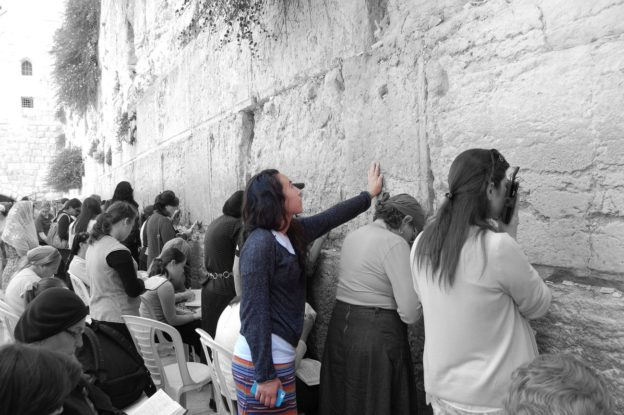
An Open Letter to Anat Hoffman
Dear Ms. Hoffman,
Many years ago, we shared a stage for a panel discussion about Israel and Judaism. But you are a well-known public figure and have appeared in countless venues to promote the feminist cause of your group “Women of the Wall,” so I hardly expect you to remember our fleeting interaction.
What you may be more familiar with is my written criticism of your goals and your group, since some of it has appeared in secular media both here in America and in Israel. I want to assure you that it was not intended as a personal attack, but was rather a battle undertaken in the arena of ideas. You have argued that the Kosel Maaravi should be a place where nontraditional public and vocal services should take place, even if such things offend those who most frequent the site.
And I have maintained that the hanhagah in place since the Wall was captured in 1967, effectively enshrining normative Orthodox practice as the standard for congregational prayer at the Kosel, should remain unchanged.
I am writing to you publicly now because of the results of the most recent Israeli elections. As you know, and likely bemoan, the two chareidi parties, Yahadut HaTorah and Shas, made unexpectedly strong showings. Their equally shared 16 Knesset seats represent a nearly 25 percent increase from their previous electoral representation. And together, they now constitute the largest Knesset faction in the government coalition after Likud, with more than three times the seats as the next most successful party.
That being the case, the chareidi parties are virtually assured to be part of Israel’s new government. That observation is not made to rub salt in any wounds, chas v’shalom, but rather as a prelude to a plea.
Realistically speaking, political machinations are not likely to change the longstanding status quo at the Kosel in the foreseeable future. And even if the Israeli courts are successfully enlisted to support the cause of dismantling the traditional public prayer custom at the site, the Knesset may be able to use its legislative power to circumvent such efforts.
In any event, the change for which you advocate is not likely in the cards for now.
And so, my plea:
Might you consider, in light of that reality, “demilitarizing” the Kosel, and putting your formidable talents and energies into truly important feminist causes, things like advocacy on behalf of equal pay for equal work and effective anti-harassment laws?
For, as you know, bringing loud nontraditional services to the revered site, as you have regularly done, only serves to cause strife. I make no excuses for anyone who berates another Jew, or so much as throws a crumpled piece of paper at her or him, much less for someone who assaults another. Hotheads exist in every group and should be tolerated in none.
But you know that your group’s actions will always meet with obnoxious reactions. Indeed, you have counted on it, making sure that when you arrive at the Kosel there are cameras and media in tow to capture whatever ugliness might result.
Provoking another Jew to overreact may not be as wrong as the overreaction itself. But it, too, is wrong.
And so, just think of what it might be like were you to seek changes to truly improve the lot of women in Israel, rather than a crusade whose only ultimate yield is strife.
Think of what it would be like to join the women who daven at the Kosel regularly with the sole goal of pouring out their hearts to Hashem. What an accomplishment it would be to make the Kosel plaza great again. A place of peace again.
You know that no one – traditional or nontraditional, Jew or non-Jew – has ever been prevented from worshipping there as an individual, and that the great majority of those who flock to the site regularly are Orthodox Jews, who want there to be a mechitzah near the Wall, and want audible public tefillah there to respect the norms born of centuries, indeed millennia, of Jewish tradition.
And you know, further, that until you launched your quest, the Kotel plaza was a place of uninterrupted amity – a Jewish societal oasis, probably the only place on earth where Jews of different religious stripes prayed sincerely side by side.
Might you consider returning it to that, every day of the year?
You and your followers can, as always, promote your religious or societal ideals in any private venue. But please give thought to the good will that you would be showing, and inspiring, were you to decide to make the Kosel once again an undisturbed place of Jewish comity and peace.
Thank you,
Avi Shafran
© 2019 Hamodia
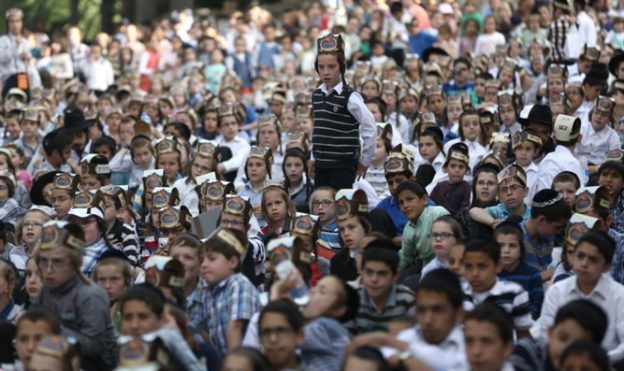
An article I wrote about the growth of the Orthodox community in Israel and in the U.S. appeared at Fox News today, and can be read here.
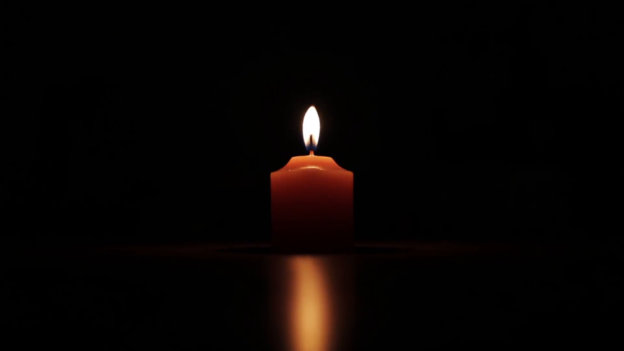
I’m always struck by the contrast this time of year between, on the one hand, the garish multicolored and blinking lights that scream for attention from so many American homes and, on the other, the quiet, tiny ones that softly grace the windows of Jewish ones. I think there may be cosmic meaning in Chanukah’s tendency to roughly coincide with a major non-Jewish holiday season.
For, while Chanukah is often portrayed by some Jewish clergy on radio programs and in newspapers as nothing but a celebration of religious freedom (or even, bizarrely, as some sort of salute to religious pluralism), the true meaning of the neiros Chanukah is clear from the many classical Jewish sources about the holiday – from the Gemara to the sifrei Kabbalah to the works of Chassidus. The celebration is entirely about the struggle to maintain Jewish integrity and observance within a non-Jewish milieu, to resist assimilation into a dominant non-Jewish culture.
The real enemy at the time of the Maccabim was less the Seleucid empire as a military power than what Seleucid society represented: a cultural colonialism that sought to erode the beliefs and observances of our mesorah, and to replace them with the glorification of the physical and the embrace of much that the Torah considers unacceptable. The Seleucids sought to acculturate the Jewish people, to force them to adopt a “superior,” “sophisticated,” overbearing secular philosophy. And so, the Jewish victory, when it came, was a triumph not over an army but over assimilation. The Maccabim succeeded in preserving the mesorah, and protecting it from dilution.
The overwhelming gloss and glitter of the non-Jewish celebration of the season are thus a fitting contrast to the still, small, defiant lights of the Chanukah menorah.
And in times like our own, when the larger Jewish world, l’daavoneinu, is so assimilated, and intermarriage so rampant, nothing could be more important for American Jews than Chanukah’s message.
Some try to make lemonade out of the bitter fruit of contemporary Jewish demographics, choosing to celebrate the incorporation of the larger society’s perspectives and mores into “new forms of Judaism,” and to view intermarriage as a wonderful opportunity for creating “converts” – or, at least, willing accomplices to the raising of Jewish, or Jewish-style, children. But they are dancing on the deck of a Jewish Titanic.
Lowering the bar for what constitutes Jewish belief and practice does not make stronger Jews, only weaker “Judaism.” And intermarriage is a bane, not a boon, to the Jewish future.
Over so very much of history, our ancestors were threatened with social sanctions and violence by people who wanted them to adopt foreign cultures or beliefs. Today, ironically, what threats and violence and murder couldn’t accomplish – the decimation of Jewish identity – seems to be happening on its own. Where tyranny failed, freedom is threatening to succeed.
Poignant meaning shines forth from the Bais Hamikdash’s menorah’s supernatural eight-day burning on a one-day supply of oil. For light, of course, is Torah, the preserver of Klal Yisrael.
Even the custom of playing dreidel is a reminder of that symbol of Jewish continuity. The Seleucids, it is related, had forbidden not only various fundamental mitzvos and hanhagos, they also outlawed the study of Torah, which they understood, consciously or otherwise, is the engine of Jewish identity and continuity. The spinning toy was a subterfuge adopted by Jews when they were studying Torah; if they sensed enemy inspectors nearby, they would suddenly take out their dreidels and spin them, masking their study session with an innocuous game of chance.
The candles we light each night of Chanukah recalling that menorah miracle reflect a greater miracle still: the survival of Klal Yisrael over the millennia. All the alien winds of powerful empires and mighty cultures were unable to extinguish the flames of Jewish commitment. “Chanukah” means “dedication.” It doesn’t just recall the Bais Hamikdash that was rededicated bayamim hahem, but calls on us to rededicate ourselves baz’man hazeh.
We do that by keeping ourselves from melting into our surroundings, and resisting the blandishments of those who insist that there is no other way. We know how to put the dreidels away and open the sefarim.
And with our determination, our mitzvos and our limud haTorah, we can prove worthy descendants of those who came before us, and continue as a people to persevere.
The great and powerful empires of history flared mightily but then disappeared without a trace. Their lights were bright but artificial.
Ours, small as they may be, are eternal.
A letter of mine was published in the New York Times on Shabbos:
To the Editor:
In his essay “Israel, This Is Not Who We Are” (Op-Ed, Aug. 14), Ronald S. Lauder sees the Israeli sky falling, as a result of Israel’s “destructive actions” like the maintenance of traditional Jewish religious decorum at the Western Wall, which Mr. Lauder criticizes as coming at the expense of a planned egalitarian prayer space, and a new Israeli law that establishes Israel as a state with a Jewish identity, which he says “damages the sense of equality and belonging of Israel’s Druze, Christian and Muslim citizens.”
But Israel, as a self-described Jewish state, needs a Jewish standard for public behavior at religious sites and to inform religious personal status issues. The standard that has served the state since its formation has been the Jewish standard of the ages — what the world calls Orthodoxy.
And, whether or not the nation-state law was necessary or wise, it does not impinge in any way on the equality before the law of any Israeli citizen.
Israel is not, as Mr. Lauder says some think, “losing its way.” It is the vast majority of the world’s Jews, those who do not regard their religious heritage as important, who are in danger of being lost — to the Jewish people. And it is those indifferent Jews who have the most to gain from the example of Israel preserving the traditional Jewish standards and values that have stood the test of history.
Avi Shafran
New York
The writer, a rabbi, is the director of public affairs for Agudath Israel of America.
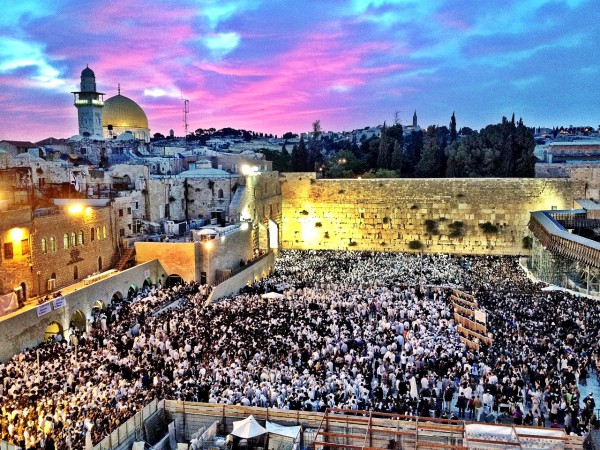
A “scandalous letter” in the files of Israel’s official rabbinate “reflects ignorance,” delivers “a severe blow” to Israel’s relations with Diaspora Jewry and “abandons the religious system in Israel to haredi hands.”
Thus spake Assaf Benmelech, whose organization, “Ne’emanei Torah Va’Avodah,” seeks to promote “open and tolerant discourse” within Orthodoxy.
Indeed.
Mr. Benmelech, a lawyer, is representing one Akiva Herzfeld, who was ordained by the “Open Orthodox” institution Yeshivat Chovevei Torah (“YCT”) and whose certification of a woman’s Jewish status was rejected by the Israeli Rabbanut. The letter at issue, he asserts, based its rejection on the rabbi’s affiliation with “modern Orthodoxy.”
That assertion has led to loud criticism from America, where the official Israeli rabbinate is being characterized as maintaining a “blacklist” and bowing to what one critic called “the more extremist elements among them” – the dreaded chareidim, of course.
Mr. Benmelech’s characterization of YCT as representative of “modern Orthodoxy” does a grave disservice to Jews and institutions that have worn that latter label for decades. The movement with which the lawyer’s client is affiliated has indeed tried of late to shed its titular skin, exchanging “Open” for “Modern.” But (to shamelessly mix wildlife metaphors) the leopard has not changed its spots.
The “Open Orthodox” movement, whatever it calls itself, is, simply put, not Orthodox at all. That is to say that it is theologically indistinguishable from the early Conservative movement, which at least had the honesty to admit that it was a new, divergent, endeavor.
The Moetzes Gedolei HaTorah has declared the movement “no different than other dissident movements throughout our history that have rejected [Judaism’s] basic tenets.”
For its part, the Rabbinical Council of America does not accept YCT’s rabbinic certifications as credentials for membership; neither does the National Council of Young Israel. And Roshei Yeshivah at Yeshiva University have likewise rejected the appropriateness of “Orthodox” as descriptive of YCT.
The movement and its supporters’ prevarication is evident too in the use of the word “blacklist” to describe what is, in the end, a simple insistence on standards. Medical students who have not demonstrated the knowledge or ethos needed to earn their accreditation have not been “blacklisted”; they have simply not made the grade. And if a medical association considers a particular medical school to be deficient in its training of doctors, the school’s degrees will not be recognized. It hasn’t been “blacklisted”; it has simply failed to meet the required standard.
And so, the Israeli rabbinate has every right – and responsibility – to reject the credentials of those affiliated with YCT. Rav Moshe Feinstein, zt”l – whose teshuvos are duly cited by YCT leaders when they feel something in the Gadol’s decisions comports with some position they espouse – was clear that a mere affiliation with the Conservative or Reform movement invalidates a rabbi’s ability to offer testimony (Igros Moshe, Yoreh Deah 1:160).
Over most of Jewish history, individual rabbanim’s testimonies were all it took to establish Jewish credentials, and geirus and gittin overseen by a beis din were not generally challenged.
There were days, too, though, when halachah-observant Jews could judge the kashrus of a processed food by just reading the ingredients.
Today, though, Jewish life is more complicated. Food products contain a laundry list of obscure colorings, flavorings and preservatives, from a multitude of sources. That’s why kashrus organizations were established, and why they are necessary.
“Rabbis” today, too, have different ingredients and come in different flavors. If halachah is to be respected, standards are not only important but an absolute necessity. At least if Klal Yisrael matters.
Tragically, in America today, there are, in reality, a multitude of “Jewish peoples,” born of the variety of definitions here of “Jewishness.” What is called “Jewish religious pluralism” has yielded an irreparable fracture of the American Jewish community. Innocent people, due to non-halachic conversions and invalid gitten, have become victims of the “multi-Judaisms” American model.
That disastrous situation is largely not the case today in Israel, due to the single standard upheld by the country’s rabbinate, no matter how imperfect the institution’s bureaucracy may seem in some eyes. Were things otherwise, the largest Jewish community in the world, the one residing in Eretz Yisrael, would be as divided and incoherent, chalilah, as the American one. The maintenance of halachic standards are what have prevented that frightening scenario.
Hamodia readers know that, of course. But our fellow American Jews need to realize that – if they truly care about Klal Yisrael – they need to move past umbrage-taking and political positioning and confront the Jewish future with honesty.
© 2018 Hamodia
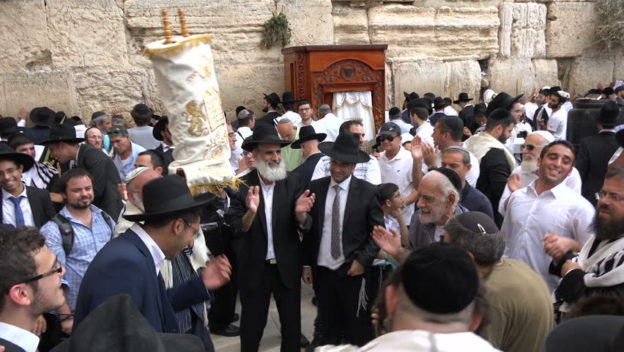
A piece I wrote for Forward about Ronald Lauder’s recent op-ed in the New York Times can be read here.